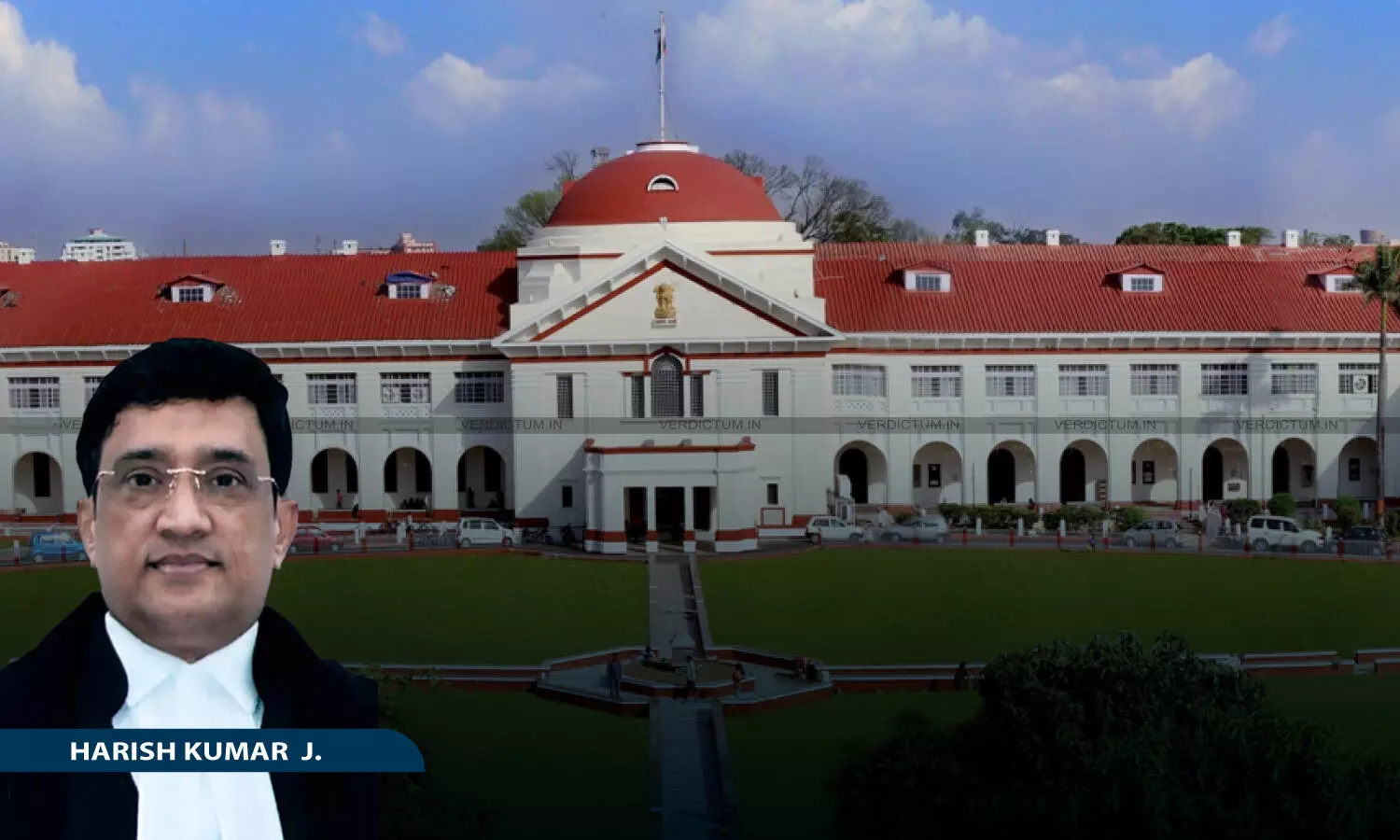
Justice Harish Kumar, Patna High Court
Departmental Enquiries Must Adhere To Procedural Safeguards & Principles Of Natural Justice: Patna High Court
 |
|The Court held that the dismissal order suffered from serious procedural lapses, including non-supply of documents, failure to examine witnesses, and absence of proper reasoning, rendering the enquiry unsustainable.
The Patna High Court has set aside the dismissal of an Assistant Director in the Social Welfare Department, holding that the disciplinary proceedings against him were vitiated by non-compliance with mandatory rules and violation of principles of natural justice.
The Court observed that the dismissal order was “cryptic, non-speaking, and passed without due consideration of the petitioner’s defence.”
A Single Judge Bench of Justice Harish Kumar observed: “This Court is also not unmindful of the settled position that the disciplinary proceeding is a quasi judicial proceeding and strict compliance of Evidence Act is not required. However, the principles of natural justice demands that the delinquent should be given an opportunity to refute the charge levelled against him by the disciplinary authority.”
Advocate Nivedita Nirvikar, Senior Counsel, appeared for the petitioner, while Advocate S. K. Mandal represented the respondents.
Background
The petitioner was serving as an Assistant Director in the District Child Protection Unit with additional charge as District Programme Officer. While holding this post, he was implicated in a vigilance trap case in which he was alleged to have accepted a bribe. An FIR was registered under the provisions of the Prevention of Corruption Act, following which the petitioner was placed under suspension.
A departmental enquiry was initiated, and a memo of charges was issued alleging serious misconduct. The petitioner denied the allegations, contending that he had been falsely implicated and requested all relevant documents and the list of witnesses to prepare his defence.
The enquiry officer, however, found him guilty, and based on the report, the disciplinary authority issued a second show cause notice to the petitioner seeking his response before passing the final order. The petitioner filed a detailed reply contesting the findings of the enquiry report and reiterating his defence.
Despite this, the disciplinary authority dismissed the petitioner from service without properly considering his response to the second show cause notice.
Challenging this dismissal, the petitioner approached the Patna High Court, alleging violation of procedural rules and denial of a fair opportunity to defend himself.
Court’s Observations
To justify exercising its writ jurisdiction under Article 226, the Court relied on the principle laid down by the Supreme Court in Whirlpool Corporation v. Registrar of Trade Marks, holding that a writ petition is maintainable even when an alternative remedy exists if the case involves a violation of principles of natural justice or the impugned order suffers from patent illegality.
Since the enquiry in this case was marred by serious procedural lapses and the dismissal order was cryptic and non-speaking, the Court proceeded to decide the matter on merits.
The Court examined the records of the departmental proceedings and found several procedural lapses that rendered the enquiry unsustainable. It observed that the disciplinary authority failed to supply the petitioner with key documents and the list of witnesses, as mandated under the Bihar Government Servants (Classification, Control & Appeal) Rules, 2005. The petitioner’s repeated requests for inspection of records were also not addressed.
The Court noted that the enquiry officer relied heavily on the vigilance trap memo and related documents but did not examine any independent witnesses, including members of the vigilance team, to substantiate the contents of those documents. It held that documentary material collected during an investigation cannot, by itself, establish guilt unless supported by proper oral evidence during an enquiry.
The judgment further emphasised that the enquiry officer functions as an independent adjudicator and must base findings on legally admissible evidence. In this case, the absence of proper witness examination and reliance solely on unproven documents undermined the fairness of the proceeding.
Accordingly, the Court held that the dismissal could not be sustained in the absence of compliance with mandatory procedural safeguards and proper consideration of the petitioner’s defence.
Conclusion
Allowing the writ petition, the Patna High Court set aside the dismissal order against the petitioner. Justice Harish Kumar concluded: “In view of the discussions made hereinabove and the reasons assigned, this Court is of the opinion that the impugned order inflicting punishment of dismissal suffers from afore mentioned infirmities and, as such, fit to be set aside.”
However, the Court granted liberty to the State authorities to take appropriate action against the petitioner if the outcome of the pending criminal proceedings goes against him.
Accordingly, the Court allowed the writ petition with no order as to costs.
Cause Title: Satyendra Narayan Singh v. The State of Bihar & Ors.
Appearances
Petitioner: Advocate Nivedita Nirvikar, Senior Counsel with Advocates Shashipriya, Shashank Shekhar, Smita Bharti, and Praveen Kumar
Respondents: Advocate S. K. Mandal, Advocate Bipin Kumar, Advocate Anil Singh